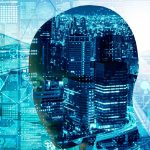Quantum computing is a rapidly evolving field of technology that utilizes principles of quantum mechanics to perform calculations far beyond the reach of classical computers. Unlike traditional computing, which uses bits as the smallest unit of data either as 0 or 1, quantum computing employs quantum bits or qubits. These qubits can exist in multiple states simultaneously, thanks to a phenomenon known as superposition. The potential applications for quantum computing are vast and varied, ranging from solving complex scientific problems to advancing cybersecurity measures. But how does it work, and what are its implications?
How Do Qubits Differ from Classical Bits?
Qubits are the fundamental building blocks of quantum computers, and they differ significantly from classical bits. While a bit can be either a 0 or a 1, a qubit can be both at the same time. This ability is due to superposition, allowing quantum computers to process a massive amount of data at once. By harnessing this power, quantum computers can solve certain problems much faster than classical computers. An example of this is the factorization of large numbers, a task crucial for cryptography, which a quantum computer could potentially perform exponentially quicker than a classical one.
What is Quantum Entanglement?
Quantum entanglement is another critical concept underpinning the power of quantum computing. Entanglement occurs when qubits become interconnected in such a way that the state of one qubit can depend on the state of another, no matter the distance between them. This phenomenon enables quantum computers to perform complex calculations more efficiently. For instance, in quantum key distribution for secure communication, entanglement ensures that any eavesdropping on the communication can be detected, which is a feature not available with classical encryption methods.
How is Quantum Computing Applied in Real-World Scenarios?
Quantum computing is still in its infancy but is already being applied to various real-world scenarios. For example, companies like IBM and Google are exploring how quantum computers can improve machine learning algorithms and optimize supply chains. In pharmaceuticals, quantum computing is being used to simulate molecular structures, potentially accelerating drug discovery processes. According to IBM, quantum computers could simulate complex chemical reactions, which is infeasible for classical computers, thereby revolutionizing material science and chemistry (IBM Quantum).
What Are the Challenges Facing Quantum Computing?
Despite its promise, quantum computing faces significant challenges. One of the main obstacles is maintaining qubit stability, as qubits are highly susceptible to environmental changes, leading to errors. This sensitivity requires quantum systems to be kept at extremely low temperatures and isolated from external vibrations. Error correction is another hurdle, as it demands additional qubits, further complicating the hardware design. Moreover, creating algorithms capable of leveraging quantum computing’s full potential is a field still under active research. These technical challenges explain why widespread commercial applications have not yet been realized.
Moreover, there are concerns about the potential impact of quantum computing on cybersecurity. Quantum computers could break current encryption methods, necessitating the development of quantum-resistant cryptographic techniques. Organizations like the National Institute of Standards and Technology (NIST) are working on standardizing these new cryptographic solutions to prepare for such eventualities (NIST Post-Quantum Cryptography).
Looking ahead, the future of quantum computing appears promising. Continuous advancements in qubit stability, error correction, and algorithm development are paving the way for more practical applications. As research and development efforts intensify, it is expected that quantum computing will gradually transition from a theoretical concept to a practical technology impacting various sectors. This transition will likely involve hybrid systems where quantum and classical computers work in tandem, optimizing processing for different tasks.
In conclusion, quantum computing represents a significant shift in the landscape of technological innovation. While it presents an array of opportunities across different domains, it also poses substantial technical and ethical challenges. As the technology continues to mature, it will be crucial for researchers, policymakers, and industries to collaborate and navigate these challenges responsibly. The development of quantum computing holds the potential to transform industries, solve complex scientific problems, and redefine the future of computing.










